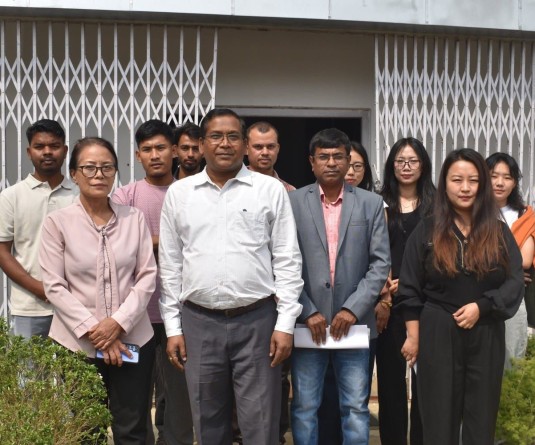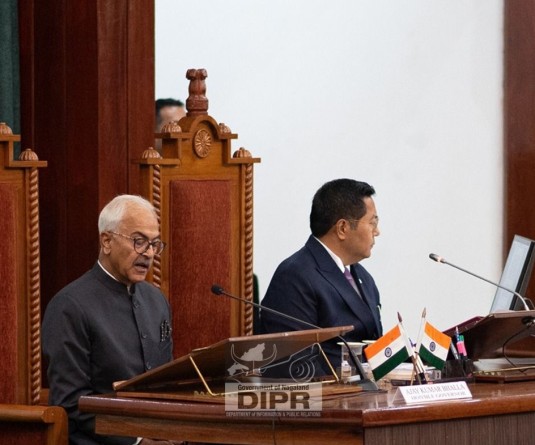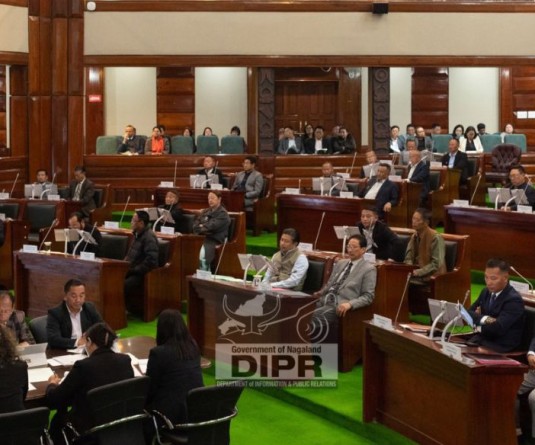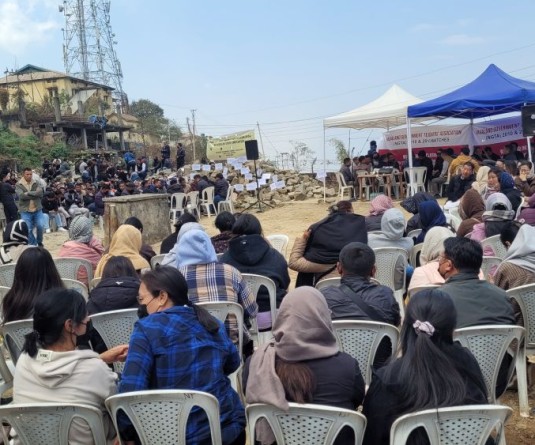Machinery at Capital Dairy Kohima. (Morung Photo)
Our Correspondent
Kohima | June 4
Nagaland State Dairy Co-operative Federation Ltd, managing director, Dr. Akho Yhokha stated that from a very humble beginning with three dairy cooperative societies procuring 100 litres per day in Dimapur way back in 1987, Dimul has grown to a sustainable and profit making Union with annual turnover exceeding 10 crores.
It has some 50 employees fully paid by the Union, he said adding that the Nagaland dairy industry under the organized sector, still in nascent stage, has generated a gross annual turnover exceeding 15 crores of which nearly 90% are plowed back to the farmers producers.
“It is a growing industry generating employment avenue to few thousands and helps circulating revenue within the state,” said Dr. Yhokha during the commissioning of Capital Dairy here at Dairy Farm Complex, Lerie on Monday.
Stating that milk culture is new to the Nagas, he said it was only over the past 30-40 years with education and more so, with Christianity, our people have increasingly taken to milk largely in the form of milk powder. In fact, even today, Nagaland and the north eastern region remains the largest market for milk powder in the country.
“However, changes in terms of food preference including milk and milk produces amongst the present younger generation is becoming more apparent. Ice-cream, sweet meats, cheese, yoghurt, butter etc. have occupied an important daily menu in many homes. Undoubtedly, the demand for milk and milk products is growing rapidly over the years, so much so that imported products are available in the local market,” the managing director said.
Referring to his tour to China in 2008, he said, officials involved in dairy industry claimed that within ten years, China will overtake India in milk production.
“Observing the dedication and industriousness of the Chinese, such a claim has high possibility,” he said adding that, to survive, the fledging dairy industry in Nagaland has to compete the rising tide of global economy and market forces.
He stated that dairy enterprise is one of the most dynamic and intensive activity, requiring regular flow of input and output. Small time produce relatively remote areas operating to dispose off the produces, marketing, revenue collection, sourcing, transportation of essential requirements such as cattle feed, AI, medicines, etc are not only daunting task but economically un-remunerative and difficult to sustain.
“This is where an organized sector for milk collection, transportation, processing, marketing and timely revenue recycle to the producer and essential delivery mechanism is more important to facilitate progress and development of dairying,” he said.
He said that dairy activities under the cooperative network of milk unions and federation, provides and assured marketing avenue to the producers.
“It collects milk from all societies/entrepreneurs, transport to the processing dairies, where milk is processed/chilled, packed including products and market the same to the public consumers,” he said adding that the Organisation further ensured timely payment, provide and deliver essential services and inputs required such as feeds, AI, health coverage to the producers’ doorstep.
“Training and skill development are integral component of the Organization. There is no other sector under agri and allied where the entire gamut from production, services, processing and marketing are integrated as dairy cooperative model we have in place,” he said.
On the other hand, Dr. Yhokha said what worry him as dairyman is lack of work and industrial culture in the state, which is by far the greatest weakness or threat.
He stated that average working hours for the Japanese is 9 hours a day that increases to 12 hours for senior executive. In Nagaland, he said, with few exceptions, general office workers as per educated guess, put in 4 hours, out of which productive hours may hardly be half of that a day.
“We have too many cultural, socio-religious activities, that no worthwhile industrial activity or output can be achieved. As far as Government institutions are concerned, there appears a systematic rot in the work culture with no one to bail out. On the other hand, the public is subjected to unbridled and unlawful taxation has created a “black hole” and vitiated our infantile business and economic development,” Dr. Yhokha said.
He observed that despite the many pressing issues and problems, one of the fundamental issues we the Nagas have to address is work ethnics and professionalism. “We must re-cultivate work culture and develop accountability to self and society we live in,” Dr. Yhokha added.






